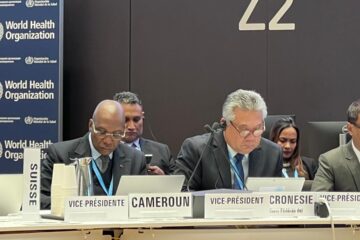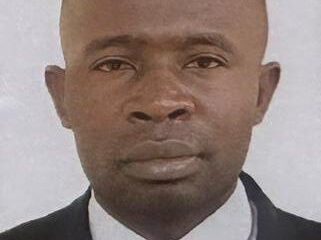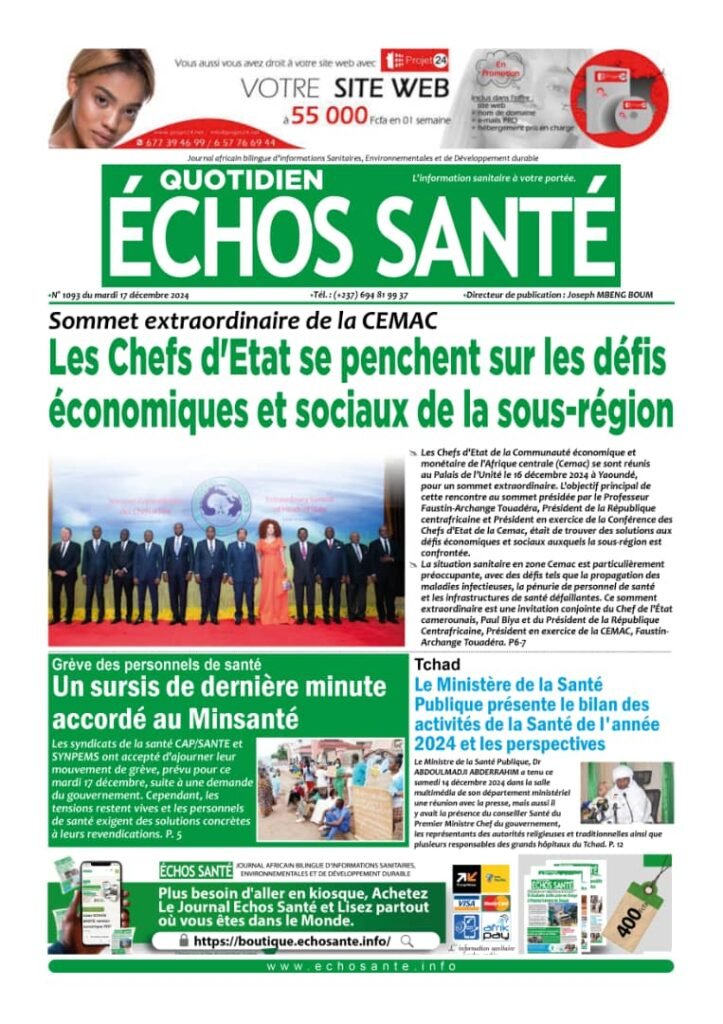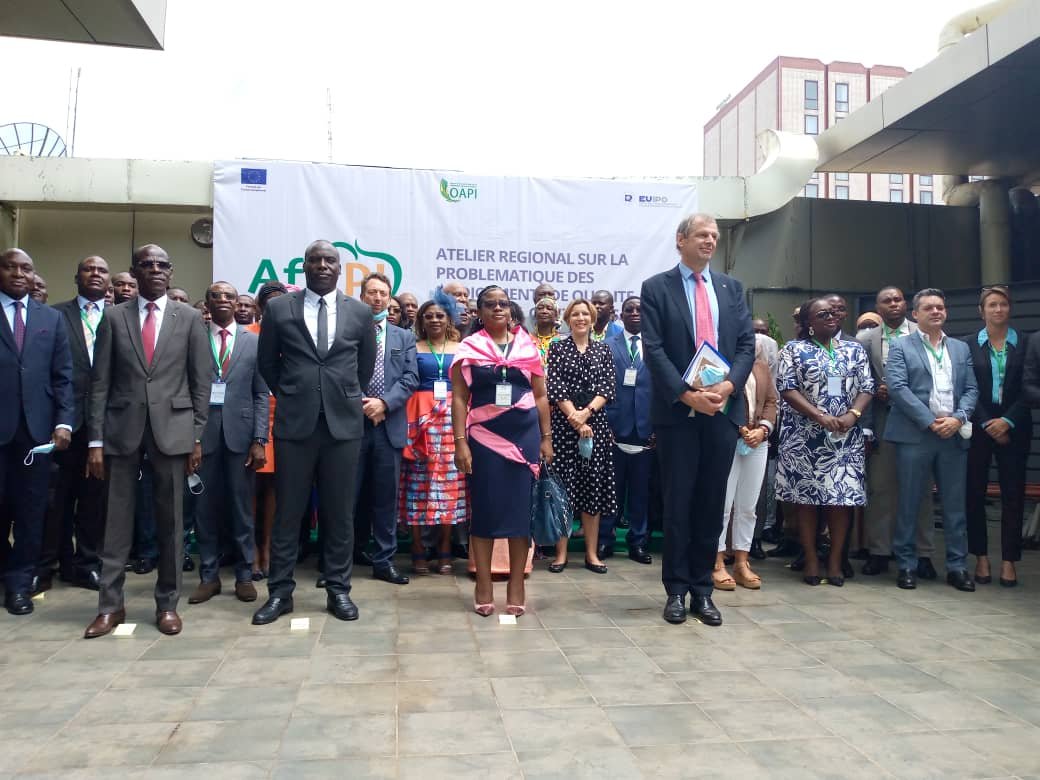
The African Intellectual Property Rights and Innovation Project (AFRIPI), a development action implemented by the European Union Intellectual Property Office(EUIPO) in partnership with the African Intellectual Property Organization (OAPI) and other health related Institutions have convened a three-day regional workshop to discussion on strategies to fight against the proliferation of substandard and illicit medications in Africa.
This atelier was launched in Yaoundé on September 27, 2021, by the secretary General at the Ministry of Public Health, Mrs. Solange Kowakop, personal representative of the minister of Public Health.
In Cameroon, the economic damage of falsified drugs stand at about Fcfa60 million, with 45 percent of drugs on the markets being imported.
It is estimated that 100 persons die every year in Africa as a result of the use of counterfeited medications.
Talking at the opening ceremony, Philippe Van Dame, the European Union Ambassador to Cameroon recalled that worldwide, $200 billion US Dollars of fake medicine circulate on an annual basis, with more than 40 percent of them in Africa.
The World Health Organization on its parts estimates that as many as one in ten medical products circulating in developing countries are Substandard or falsified. The proportion of fake pharmaceuticals in developing regions such as Africa can be as high as 70 percent. WHO adds that 42 percent of all fake medicines reported to them between 2013 and 2017 were seized in Africa.
It is difficult to distinguish between these illicit drugs and legal ones at first view. “It is like you take a fake banknote and you mix it with genuine ones. Counterfeiters today are very cleaver, so they will use a lot of strategies to shift most of these barriers, «stated Rose Ngone Mballa, president of Lanacome.
Experts however know how to sort out these falsified medicines, she says. ” When they are going to evaluate wholesalers, they are also able to find out that some medicines are not in good quality. We can also identify fake drugs by deciding that all medicines that are in the illicit traffic are fake medicines,” she added. It also suffices to test the active ingredients during laboratory analysis to single out fake drugs.
The circulation of falsified drugs took a different dimension with the coming of Covid-19, both in Africa and in Europe. The National Drug Quality Control was strategic in spotting out fake chloroquine in 2020, when this drug was picked out of covid-19 treatment drugs. Antimalarial, anti-inflammatory and antibiotics are most likely to be copied, as statistics talk of 35 percent anti malaria drugs copied. Among falsified drugs, we have those with overdose substances, those illegal imported, and producers without structures.
Counterfeiters are more interested in making money than saving lives, reason for the fast increase in the circulation of fake drugs.These dealers make money 25 times than legally recognized institutions, which is a call for concern. Poor citizens are more and more used in enlarging this market. Lives are lost while consuming these drugs, enough reason why this illegal practice should be stopped immediately.
However, the eradication of roadside drugs is a huge challenge to authorities, as the illicit practice business continues to ravage the country, even though prohibited by the law. “The big problem that we have today is to mobilise fundings to make this elimination. What will be good for us is to close most of these drug outlets and to take all these people to the court because as we have the law to protect consumers in Cameroon, public health is one of the domains of this law,” the Lanacome boss explained.
Many customers of roadside drugs claim that they go in for them due to the high cost of drugs in pharmaceutical industries. This high cost is often attributed to high taxes paid to custom officers at checkpoints.
However, assurance was given during this launching ceremony that, a strategy was to be put in place to reduce the cost of medications at legal institutions. Again, the state has to put in place right purchase, transportation and supply measures to limit the circulation of fake drugs.
For many years in Cameroon now, the policy has been to prohibit the existence of roadside medicine stores with occasional rates to seize and burnt their products. The competent authorities seem not to be succeeding in the fight, as more and more illicit drugs are intercepted in the country. Authorities have attributed this failure to the incompetence of the body resigned to take charge.
“A team which was put in place a long time ago to fight against illicit drugs and to be sure that these drugs are seized and destroyed is no longer functioning,” Nasseri Paul Bea, the governor of the Centre region lamented.
Dr. Lapnet Moustaph, secretary general of the council of pharmacists in Cameroon added that once a strategy is put in place for the fight against Counterfeited drugs, it needs to be adjusted as time goes on, in order to succeed in the battle. To him, besides the availability of drugs, it should be accessible. That is why the government has embarked in the universal health coverage.
They are no easy solutions to the problem, but the approach can be re-strategised with the country adopting measures to engage informal medicine vendors in the implementation of the quality and coverage of essential medicines.
The three-day workshop therefore aims at creating a synergy of action between the different stakeholders to effectively tackle the circulation of fake medications, and to concert on local, national and regional strategies to boost the emergence of local pharmaceutical industries.
In order to achieve this, all stakeholders, including Medical regulatory bodies, legislative, and law enforcement officers must come together around a common table to share ideas, according to Gregor Schneider, Deputy Project Leader for Afripi.
“We would like that there be recommendations from politicians, how to further improve the fight against falsified medicines. The expectations are to understand all the actors of the different countries who have very specific experiences. May this exchange of experiences help us to fight better against falsified medicines,” Gregor Schneider said.
It should be recalled that the session brought the 20 member countries of OAPI, senior officials from health ministries, police and custom officers, academic and Intellectual Property experts to share their experiences in the fight against counterfeit medicines and explore the legal tools and International mechanisms available for the better enforcement of the related Intellectual Property Rights.
If drugs counterfeiting must also stop, law enforcement officers and other competent powers have to destroyed illegal drugs seized, as well as ban the structures involved. Other solutions include inviolability, identification, traceability, authenticity of drugs and the integration of economic experts.
Ingrid KENGNE
Reactions
Solange Kowakop, Secretary at the Ministry of Public Health and Personal representative of the Minister of Public Health
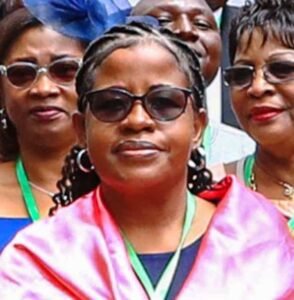
It is an initiative that we appreciate at its true value. This is a very topical subject. The government is aware of all these contraband products. So in Cameroon, we have developed a plan to fight against fake drugs. We have a national multi-sectoral control committee which brings together all the ministries and partners, because the fight against counterfeit drugs does not concern the Ministry of Public Health alone. It includes MINJUSTICE, MINTRANSPORT, MINDEF, MINAT, customs, the national security, the gendarmerie …… Everyone is represented in this committee to put the traffickers in harm’s way. We also have a national authority, pharmacy regulations which regulate the drug sector. We also have awareness sessions precisely to bring the population to understand that there are health dangers in consuming this substandard drugs which are falsified. We are launching an appeal this morning to say that October 12 will be the celebration of the fight against counterfeit drugs and we also call on the population to consume medical products found in pharmacies and hospitals. Anything besides this is considered fake medicine. That is to say everything found in the streets, on the head by street vendors ……. everything that is sold by the roadside, in the markets….. all this constitutes fake medicine.
Philippe Van Dame, EU’s Ambassador to Cameroon
The European Union is aiding the Afr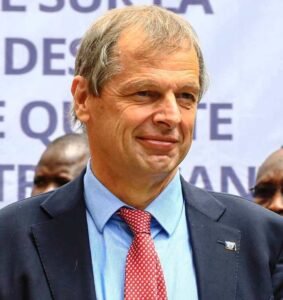 ican Intellectual Property Organization, OAPI with an amount of 17 million Euros, FCFA 12 billion to extend its activities. The fight against fake drugs is an important element. In this exercise, it is worth noting that worldwide, 200 billion US Dollars of fake medicines are circulating on an annual basis, with more than 40% of them in Africa. The World Health Organization thinks more than a hundred thousand of people in Africa alone die every year only by the use of fake medicines. So it gives you scale of the problem and in respect of intellectual property, EUIPO can execute its role in the fight against fake medicines and pharmaceutical products.
ican Intellectual Property Organization, OAPI with an amount of 17 million Euros, FCFA 12 billion to extend its activities. The fight against fake drugs is an important element. In this exercise, it is worth noting that worldwide, 200 billion US Dollars of fake medicines are circulating on an annual basis, with more than 40% of them in Africa. The World Health Organization thinks more than a hundred thousand of people in Africa alone die every year only by the use of fake medicines. So it gives you scale of the problem and in respect of intellectual property, EUIPO can execute its role in the fight against fake medicines and pharmaceutical products.
This is a project of the European Commission which wants to strengthen intellectual property rights. That is, to increase awareness of intellectual property rights and trigger economic growth. It’s good for businesses to use intellectual property. So we want to help the institutions’ capacity and also make companies aware of using that. This is very important now that you open the African commins market, The African Continental Future in the women. This is the moment when we have to talk about the protection of intellectual property when you are entering a market which is bigger now, and which is theoretically free in all containers.
Gregor Schneider, deputy project leader for Africa Intellectual Property Rights and Innovation Project

Afripi is a commission program of the European Union that in cooperation with the regional Organizations that is specialized on intellectual properties. So we have two locations where we are working; one here in Cameroon with OAPI, which is one of our reliable partners and EUIPO that deals with the regional Organization of intellectual properties that deals with the other Countries. We would like that there are recommendations from politicians, how to further improve the fight against falsified medicines. The expectations are to understand all the actors of the different countries who have very specific experiences. May this exchange of experience help us to do better against falsified medicines.
Denis Bohoussou, Director General of OAPI
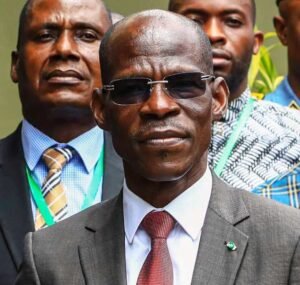
We must welcome as a regional organization in the fight against intellectual property, step in when it comes to problems of counterfeited drugs. This is the reason why with our colleagues of Project Afripi, we agreed to to do this important activity here in Yaoundé, to ensure that the population has confidence in the drugs that are served and that the fake drugs or substandard drug, which by the way, violate intellectual property rights, must be withdrawn from circulation.
Rose Ngone Mballa, General Manager of Lanacome
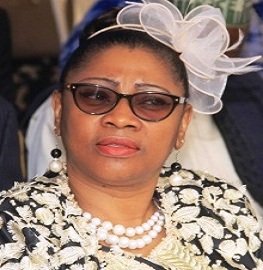
To combat the circulation of fake medications, it is good to have a strong platform of police, gendarmes, customs and regulatory bodies of the ministry of Public Health and the national quality control arm. So there is a need to define a very strong coordination and collaboration works. Counterfeiters today are very cleaver, so they will use a lot of strategies too to shift most of these barriers. That’s why in Cameroon today, we have the national platform to fight against the circulation of these medicines. We are working, we are meeting, but the big problem that we have today is to mobilise fundings to make this elimination, because what will be good for us is to close most of these drugs outlets and to take all these people to the court because as we have the law to protect consumers in Cameroon, public health is one of the domains of this law. When you are involved in dangerous activities that can cause death, you have to pay a lot of penalties. So that is a very difficult fight. That is why I’m making this advocacy here for the government to give money to this Committee because we have seized a good quantity of these medicines so far. Gendarmes are very motivated to work, but we need fundings.
The damage caused by these drugs is not evaluable because many people are in hospitals, and sometimes it is because of the medicines. Now they will try to find another illness and they will treat them. So it is a very big a problem. It is a public health problem but also a regulatory problem because when you have open channels of distribution of medicines, it is not good.
We can identify fake drugs by deciding all medicines that are in the illicit traffic are fake medicines, that is what Ghana does and they have removed all these medicines from their roads and they are protecting their people. When you have this illicit traffic, you don’t have the means to find out which if which is good and which isn’t good.

